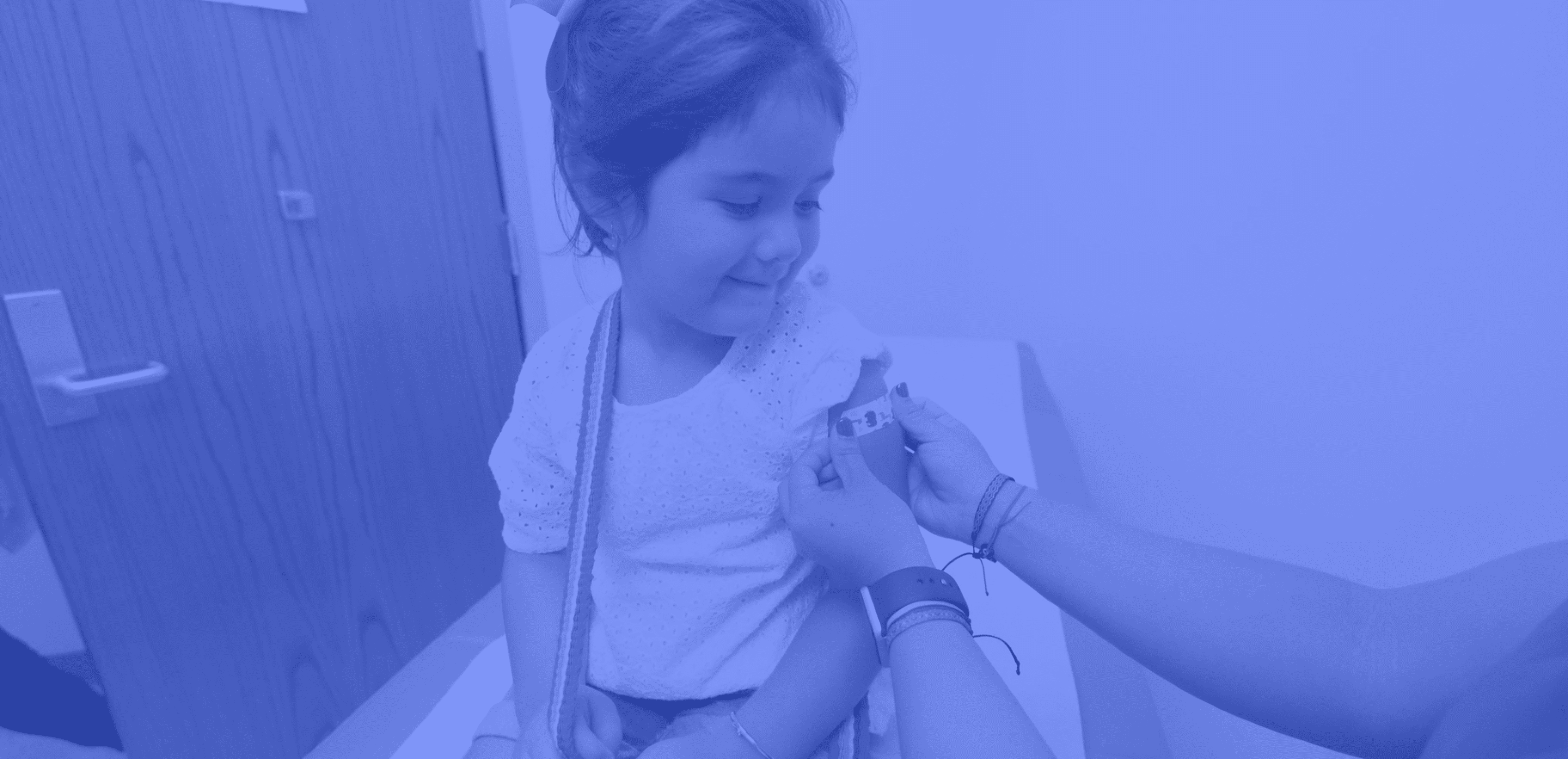Parents Are Cautious to Vaccinate Their Kids Against COVID

26% of parents plan to get their children vaccinated immediately.
As the U.S. continues the Covid-19 vaccine rollout, many parents are paying attention to the effects of the vaccines and putting serious thought into which ones are receiving the best results and least side effects before vaccinating their kids. Invisibly used it’s Realtime Research tool to poll 1258 Americans to find out public sentiment on the topic, and learn if parents are vaccinating their kids and if so, when they plan to do it.
Highlights
- We surveyed 1258 people to learn the ages of their children and find out if and when they plan on getting them vaccinated.
- The results show that only 26% of parents plan to get their children vaccinated immediately.
- 74% of people will either wait a few months or don’t plan to vaccinate their kids at all.
- The youngest of respondents, those 18-24, are the most willing to get their kids vaccinated. That rate lowered as the parental age-range increased, meaning older parents are less likely to get their kids immediately vaccinated.
Results
When asked whether or not people plan on getting their kids the Covid-19 vaccine, 53% of respondents said yes, compared to 47% who said no. When asked about the age of their children, 22% of respondents said their children were between 0-5 years of age, 17% said their children were between age 6-9, 29% said their kids were between the ages of 10-13, and 32% had children between 14-17 years old.
53% of parents said they planned on getting their children the Covid-19 vaccine.

41% of survey responding parents said they will wait a few months after the vaccine becomes available to get their kids the shot. 33% said they did not have any plans to vaccinate their kids. Only 26% of respondents said they would immediately get their kids vaccinated.

Out of the parents who plan to vaccinate their kids, 61% said they plan to wait a few months after it becomes available, with only 39% saying they would do it as soon as they can.

Our survey revealed that the majority of the respondents’ children (32%) were between 14 and 17 years old. 29% of the children were aged between 10 and 13 years old, 22% of respondents had children between 0-5 years old, and 17% had children aged between 6-9 years old.

Of those who will definitely be vaccinating their children, 36% said their children were between ages 14 and 17. Also among those who will vaccinate their kids, 29% said their kids were between 10 and 13 years old. 18% of those parents who will vaccinate said their children were between 6-9 years old, and 17% of those parents who are willing to vaccinate had small children under the age of five. Among those parents who will not be vaccinating their children, 29% had children aged 14-17, the same percentage went for children aged 10-13. 16% of children whose parents will not be vaccinating them were aged 6 to 9 years old. 26% of children whose parents will not be getting vaccinated were aged under five years old.

The data shows that 24% of parents who are willing to vaccinate their kids had children aged 14-17 years old. 18% of those same parents had children between 10-13 years old, while 10% of parents who will vaccinate their kids had children who were aged between 6-9 years old, and only 9% of parents willing to get their kids the vaccine had children aged under 5 years old.

The vast majority of parents who said they would not be getting the vaccine for their children were aged 55 and over. The second highest group in that category were the 41-54 year olds at 56%, followed by 50% of 25-40 year olds who do not plan on vaccinating their children and 37% of 18-24 year olds who are not getting their kids vaccinated. In comparison, just 26% of the 55 and over group said they would get their kids vaccinated, while 44% of parents aged 41-54 plan to vaccinate their kids, 50% of 25-40 year olds will also get their kids vaccinated, and the majority of those vaccinating their kids (63%) were aged between 18-24.

Our survey revealed that in the 18-24 parental age group, 63% said they would get their kids vaccinated as soon as they could. In that same age group, 22% said they would wait a few months before getting their kids the vaccine. Among 25-40 year-olds, 40% said they would get their kids vaccinated as soon as they could compared to 21% who said they would wait a few months first. Of those parents in the 41-54 age group, 34% said they would get their kids vaccinated as soon as they were able to, compared with 15% who said they would rather wait a few months after the vaccine becomes available. In the oldest age group, the 55s and over, 25% said they would get their kids vaccinated as soon as possible, compared with just 10% who said they would wait a few months after the vaccines become available.

The Process
When asked whether or not people plan on getting their kids the Covid-19 vaccine, 53% of respondents said yes, compared to 47% who said no. When asked about the age of their children, 22% of respondents said their children were between 0-5 years of age, 17% said their children were between age 6-9, 29% said their kids were between the ages of 10-13, and 32% had children between 14-17 years old.
We Asked
- Do you plan on getting your child the Covid-19 vaccine?
- When do you plan on getting them vaccinated?
- How old is your child(ren)?
- If you plan to vaccinate your kids, how old will they be when you vaccinate them?
- What is your age?
Discussion
When asked whether or not people plan on getting their kids the Covid-19 vaccine, 53% of respondents said yes, compared to 47% who said no. When asked about the age of their children, 22% of respondents said their children were between 0-5 years of age, 17% said their children were between age 6-9, 29% said their kids were between the ages of 10-13, and 32% had children between 14-17 years old.
Invisibly Realtime Research surveys differ from traditional online surveys in that the questions are shown to the user on web pages in place of an ad (Figure 1). Unlike Google Surveys, which block access to content until the questions are answered, Realtime Research surveys are optional, thus ensuring that participants are responding voluntarily.

Invisibly
Use your data to access premium content you love.

